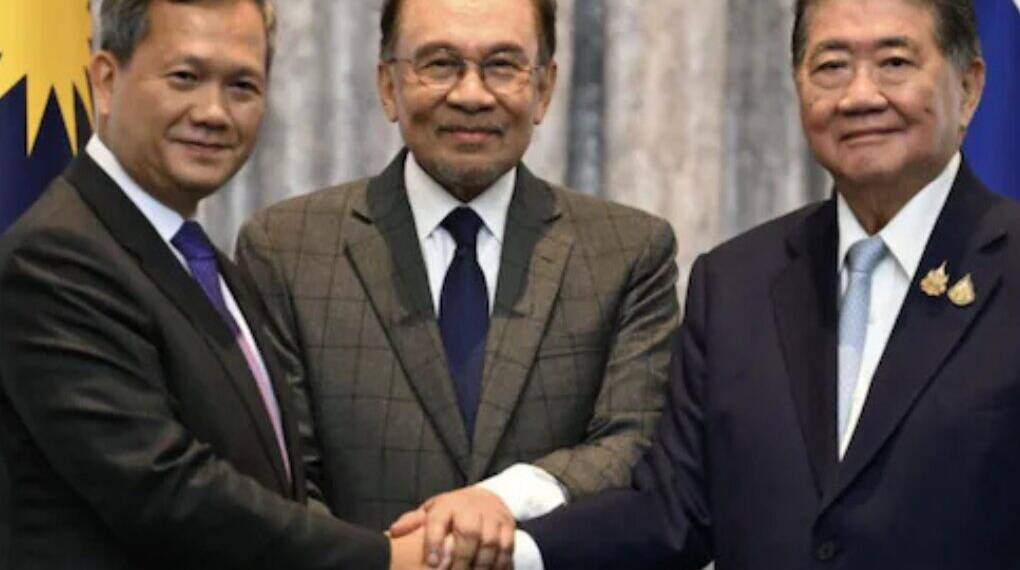After days of deadly border clashes, Thailand and Cambodia have agreed to an unconditional ceasefire beginning at midnight on July 28, according to Malaysia’s Prime Minister Anwar Ibrahim, who brokered the talks between the two Southeast Asian nations.
The agreement came after a high-stakes emergency meeting in Kuala Lumpur, where Thailand’s acting Prime Minister Phumtham Wechayachai and Cambodian Prime Minister Hun Manet held direct discussions. The truce was reached amid rising regional tensions and growing international concern over the violence.
“Both Cambodia and Thailand reached a common understanding: an immediate and unconditional ceasefire effective from midnight tonight,” said PM Anwar, who also serves as the current chair of ASEAN, the Association of Southeast Asian Nations.
Root Cause: A Decades-Old Dispute Reignites
The conflict reignited a long-standing territorial dispute between the two nations, particularly around the area of the Preah Vihear temple and the Dangrek mountain range, located along the northern Cambodian Thai border.
Although the International Court of Justice (ICJ) awarded ownership of the Preah Vihear temple to Cambodia in 1962, both nations continue to contest the surrounding land. Skirmishes have flared up intermittently over the years, but the recent escalation was among the deadliest in over a decade.
Last week’s violence began when Thai military units were accused of deploying French-made missile launchers and heavy artillery near the disputed zone. Cambodia responded with retaliatory fire. Reports of chemical agents and “poison warfare” tactics, although unconfirmed, sparked panic and displacement of civilians in the border region. At least 17 soldiers were killed, and dozens of villagers were forced to flee.
International Mediation and U.S. Pressure
Following the outbreak of violence, global powers, including the United States and China, urged de-escalation. U.S. President Donald Trump personally intervened, warning both leaders that further hostilities could jeopardize future trade agreements with Washington.
Malaysia stepped in to offer a neutral ground for peace negotiations. Anwar Ibrahim’s leadership was praised for swiftly organizing the talks and securing commitments from both sides.
During the press briefing, Cambodian Prime Minister Hun Manet thanked Malaysia and international partners:
“We had a productive meeting with promising results. We hope today’s ceasefire will bring immediate relief to affected communities and form the basis for long-term stability.”
Thailand’s acting PM echoed similar sentiments, emphasizing the need for “continued dialogue and respect for sovereignty.”
Next Steps and Regional Impact
The agreement includes:
A 24-hour immediate ceasefire
Resumption of military and diplomatic communication
A framework for future bilateral border talks
Observers say the success of Malaysia’s mediation could set a positive precedent for ASEAN, often criticized for its slow conflict resolution processes.
However, experts caution that while the ceasefire brings temporary calm, core issues remain unresolved, including border demarcation and historical grievances.
As one analyst put it, “The guns may fall silent for now, but real peace requires a shared vision — not just a signed paper.”








